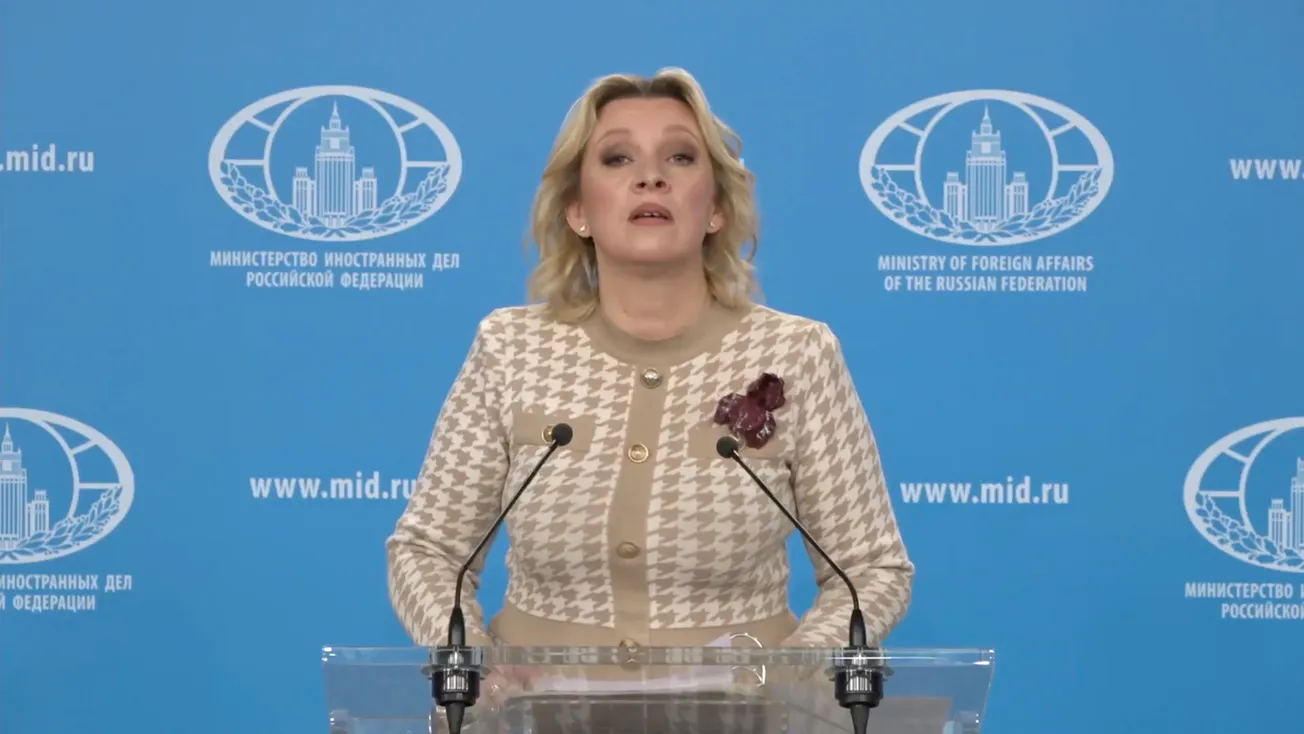At the afternoon session of the Munich Security Conference today, German Foreign Minister Annalena Baerbock and Secretary of State Tony Blinken took the stage to proclaim that the virtuous defense of liberal democracy and the rules-based international order is what holds the Trans-Atlantic alliance together to face the autocratic evil of Vladimir Putin. Baerbock gave the keynote address, after which she joined “dear Tony” for a panel of two moderated by Cristoph Heusgen, ambassador and the new chairman of the board of the Munich Security Conference.
In her speech, Baerbock turned on its head the concept of indivisibility of security that both Putin and Sergey Lavrov have so eloquently and clearly described, based on treaties signed by Russia and Western nations, saying that, of course, as German Foreign Minister she agrees completely with the concept, but that it’s Russia that is threatening it by deploying its forces to the border with Ukraine and threatening its security. Russia’s threats to Ukraine are “an unacceptable threat to the peace architecture,” she warned, then added that “this is not a Ukraine crisis but a Russian crisis,” and that Russia had better draw down its troops and be prepared to sit down and talk. Then, she intoned, what is at stake in Ukraine is liberal democracy and the rules-based order: “We can’t withdraw from liberal democracy…. We have to be part of the competition between liberal democracy and authoritarianism.” Here she explained what a wonderful opportunity Biden’s Build Back Better World represented for nations to invest in Ukraine’s future.
Speaking as if she were in an alternative universe, in which the history of the previous 60 years had never occurred, and in which there are no complexities or differences among the “allies,” Baerbock said she was optimistic about being able to protect the rules-based order, based on protection of human rights and democracy, because of the “strength of our Transatlantic union.” We aren’t helpless, she said. We’re determined to impose sanctions if necessary, which have been coordinated with our allies. “We’re prepared to pay a high price” including on Nord Stream 2, she said, clearly not the slightest bit concerned about what sanctions on Russia would do to the already energy-starved German population. Then she went through the litany of platitudes that only one country can decide its own future, sovereignty, etc. and of course, Europe will defend the rules-based order.
During the two-person panel session, Blinken was asked, where do we stand on Ukraine? He said that “we"—U.S., Germany, the EU, NATO—"all have the same perspective, the same conviction"; we can’t deal with any problem alone; we have a partnership to deal with all world problems—Covid, energy, climate, etc. “That’s why we’ve revitalized our alliances,” and Germany is “our partner of first resort. We complement each other…. Germany has moral clarity.” On Ukraine, he said, we’re doing everything possible on diplomacy, a concerted effort, but that’s not Russia’s plan—they’re engaging in “false provocations.” He pompously proclaimed that “we’re informed by history” by 2014, by 2008 (Georgia)—we know how Russia operates; they haven’t drawn back their troops. Blinken asserted that Putin’s “been really surprised by our solidarity” and unity. Baerbock did have to give a long answer to a question about why Germany doesn’t sell weapons to Ukraine, because of its history with Russia. “We have different roles in history,” she said. Germany has decided to give financial aid instead, adding that international aid and cooperation for Ukraine is far better than “a solo effort.”
In the Q&A period, a Brit, who identified himself as the chair of the Defense Committee in House of Commons, provocatively asked whether saying that because Ukraine isn’t a member of NATO wasn’t just an excuse not to act; and that doesn’t the new bold alliance between Russia and China show that Russia doesn’t care about Europe, and is likely to “go East” rather than strengthen relations with Europe? Baerbock replied that the China-Russia alliance is “dangerous” but that Europe’s strong solidarity and Transatlantic alliance will protect it. Plus, if you consider the effect that sanctions will have on Russia, cutting it off entirely from Europe, and leaving it crippled—they will want to think twice before they act. Here Blinken chimed in by noting that together, China and Russia only represent about 20% of global GDP, while the U.S., EU, plus Australia, Japan and other Indo-Pacific allies are 40% and climbing toward 50%. It’s “the liberal international order that holds us together,” he boasted, failing to mention that they’re hanging together as they descend into the maelstrom. (https://www.youtube.com/watch?v=zogC7_gk5BQ)


